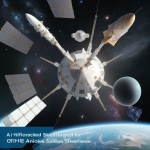Securing Your OFW Children’s Future: A Comprehensive Guide to Educational Support and Financial Planning
Introduction: Investing in the Future Generation
The sacrifices made by Overseas Filipino Workers (OFWs) are immense, often involving years of separation from loved ones. A primary motivation for this dedication is the desire to provide a better future for their children, particularly through education. However, distance, financial constraints, and lack of information can create significant hurdles. This guide provides a roadmap for OFWs to navigate these challenges and ensure their children receive the quality education they deserve, focusing on strategies applicable throughout the 2030s.
We’ll explore government programs, financial planning, parental involvement, alternative education, and legal considerations, offering actionable insights to empower OFWs to build a brighter future for their families. Investing in OFW children education is not merely about paying tuition fees; it’s about fostering an environment where they can thrive academically, emotionally, and socially, despite the physical absence of one or both parents. This requires a holistic approach that encompasses financial stability, consistent communication, and access to the right resources.
Many OFWs grapple with the challenge of securing adequate funding for their children’s education. Financial planning for OFWs education should begin with a clear understanding of the projected costs, including tuition, books, supplies, and other related expenses. Creating a dedicated education fund, separate from other savings, can help ensure that these funds are readily available when needed. Exploring options like high-yield savings accounts, government bonds, or even carefully considered investment portfolios can help grow the fund over time.
Remember that starting early, even with small contributions, can make a significant difference due to the power of compounding interest. Accessing an OFW scholarship Philippines is a crucial component to alleviate financial burden and provide more opportunities. Parenting OFW children education demands a conscious effort to bridge the geographical gap. Regular communication is paramount. Schedule dedicated time for video calls, not just for casual chats, but also to discuss schoolwork, challenges, and achievements. Actively participate in school activities remotely, if possible, and maintain open lines of communication with teachers and guidance counselors. This proactive involvement demonstrates your commitment to your child’s education and well-being, fostering a sense of connection and support despite the distance. Furthermore, it’s essential to instill in your children a strong sense of self-reliance and responsibility, empowering them to take ownership of their education and future. By combining financial preparedness with active parental engagement, OFWs can create a solid foundation for their children’s educational success.
Government Programs and Scholarships for OFW Dependents
The Philippine government, recognizing the immense contributions of Overseas Filipino Workers, provides a range of programs and scholarships designed to support the education of OFW dependents, directly addressing OFW children education needs. Navigating these resources effectively requires a clear understanding of eligibility criteria, application procedures, and the specific benefits offered. The Overseas Workers Welfare Administration (OWWA) stands as a primary source of educational assistance programs (EAPs), offering financial aid to qualified dependents to alleviate the financial burden of education.
Eligibility for these programs typically hinges on active OWWA membership, demonstrated through a minimum number of contributions, highlighting the importance of maintaining good standing with OWWA. The application process generally involves submitting proof of OFW employment, the dependent’s academic records, and other supporting documents to the nearest OWWA office, underscoring the need for meticulous record-keeping and timely submission. This is a critical aspect of financial planning for OFWs education. Beyond OWWA, the Department of Labor and Employment (DOLE) also extends educational opportunities through its various programs.
For instance, the Workers Organization and Development Program (WODP) may provide educational grants to dependents of union members who are OFWs, showcasing a broader network of support for OFW families. Detailed information and application forms are readily available on the DOLE website, encouraging OFWs to actively explore these avenues. Furthermore, numerous state universities and colleges (SUCs) across the Philippines offer scholarships specifically earmarked for OFW dependents, expanding the landscape of available resources. Researching these opportunities at the local SUC level is crucial, as eligibility requirements and award amounts can vary significantly.
These initiatives aim to ease the financial strain on OFW families, ensuring that their children have access to quality education. Parenting OFW children education often involves navigating these complex systems. It’s crucial to remember that deadlines and requirements for these government programs and scholarships are subject to change, necessitating regular communication with the relevant agencies. Proactive engagement with OWWA, DOLE, and local SUCs ensures that OFWs remain informed about the latest updates and can capitalize on available opportunities. A comprehensive analysis of these programs reveals varying amounts of financial assistance, diverse eligibility complexities, and the paramount importance of early application to maximize the chances of success in securing an OFW scholarship Philippines. Moreover, understanding the tax implications of these benefits, if any, contributes to sound financial planning for OFWs education. By strategically leveraging these resources, OFWs can significantly enhance their children’s educational prospects and secure a brighter future for the next generation.
Financial Planning Strategies for Sustainable Educational Funding
Sustainable educational funding necessitates proactive and adaptive financial planning, particularly crucial for OFWs supporting their children’s education from abroad. Begin by establishing a comprehensive budget, meticulously allocating a specific percentage of your income towards your OFW children education. This process demands diligent tracking of all income and expenditures, identifying potential areas for savings, and setting realistic, achievable financial goals aligned with the projected costs of education. Remember to factor in not only tuition fees but also ancillary expenses such as books, uniforms, transportation, and potential extracurricular activities.
Regularly review and adjust this budget to accommodate changes in income, expenses, and educational costs, ensuring that your financial plan remains relevant and effective. Explore diverse investment options to strategically grow your educational fund, carefully considering your risk tolerance and investment timeline. While low-risk investments like government bonds or high-yield savings accounts offer stability, they may not provide sufficient returns to outpace inflation over the long term. For potentially higher returns, consider diversifying your portfolio with mutual funds or stocks, but only after thoroughly assessing your risk appetite and seeking professional financial advice.
Diversification is paramount to mitigating risk, spreading your investments across various asset classes and sectors. Furthermore, explore investment opportunities specific to the Philippines, taking advantage of potential growth in the local economy to maximize your returns for OFW children education. Insurance products, especially educational plans, serve as a vital safety net, providing guaranteed payouts upon maturity regardless of market fluctuations. These plans offer peace of mind, ensuring that funds will be available for your children’s education even in the face of unforeseen circumstances such as job loss or medical emergencies.
Consult with a reputable financial advisor to determine the most suitable educational plan for your specific needs and financial situation. A critical, often overlooked, aspect of financial planning for OFWs education is preparing for unexpected educational expenses, such as tuition increases, special tutoring needs, or opportunities for overseas study programs. Establishing an emergency fund specifically earmarked for education can provide a financial cushion, preventing disruptions to your children’s studies and alleviating stress. Financial planning is not a static, one-time event but rather an ongoing process that requires regular review and adjustments based on your evolving circumstances and financial goals.
Stay informed about changes in the Philippine economy, investment opportunities, and government programs like the OFW scholarship Philippines, that can support your children’s education. Regularly assess your investment portfolio, making adjustments as needed to maintain your desired asset allocation and risk profile. Consider the impact of inflation and potential currency fluctuations when projecting future educational costs, ensuring that your financial plan remains aligned with your long-term goals. Moreover, prioritize financial literacy, educating yourself about investment options, risk management, and financial planning strategies to make informed decisions that benefit your children’s future. Parenting OFW children education requires not only financial support but also careful planning and continuous adaptation to ensure their educational needs are met.
The Importance of Parental Involvement and Communication
Parental involvement remains crucial, even when separated by vast distances. For Overseas Filipino Workers, technology bridges the gap, offering numerous avenues for staying connected and supportive in OFW children education. Schedule regular video calls, not just to monitor studies, but to engage in meaningful conversations about their challenges, achievements, and aspirations. These interactions provide invaluable insights into their academic and emotional well-being, fostering a sense of connection despite the physical separation. Actively participate in school events virtually whenever possible, attending parent-teacher conferences via video call or accessing online portals to review their progress.
This active participation demonstrates your commitment to their education and reinforces its importance. Remember, even a short, focused conversation can make a significant difference in a child’s sense of security and motivation. Communicate regularly with teachers and school administrators to stay informed about your children’s progress and address any concerns promptly. Leverage email, messaging apps, or scheduled phone calls to maintain open lines of communication. This proactive approach allows you to address potential issues early on, preventing them from escalating and impacting your child’s academic performance.
Encourage your children to communicate openly about their academic and personal lives, creating a safe and supportive environment where they feel comfortable sharing their thoughts and feelings. This involves active listening, empathy, and a non-judgmental approach. Remind them that you are always there for them, regardless of the distance. Designate a trusted family member or guardian to provide on-site support and guidance. This individual can attend school meetings, assist with homework, and provide emotional support, serving as your proxy in ensuring your child’s well-being.
Financial planning for OFWs education also plays a crucial role in enabling parental involvement. Understanding the costs associated with education, from tuition fees to school supplies, is essential. Explore government support programs for OFW dependents, such as the OFW scholarship Philippines offered by OWWA and other agencies. These programs can alleviate the financial burden and allow you to focus on providing emotional and academic support. Establish clear expectations and guidelines for academic performance and behavior, setting realistic goals and providing the resources necessary to achieve them.
Provide positive reinforcement and encouragement to motivate your children to excel, celebrating their successes, both big and small, to boost their confidence and self-esteem. This includes acknowledging their efforts, praising their achievements, and providing constructive feedback. Parenting OFW children education requires a delicate balance of remote involvement and empowering local support systems. To further enhance engagement, consider creating a shared digital space where you can collaborate on school projects, review assignments, and track progress. This could be a shared document, a dedicated messaging group, or an online learning platform.
Regularly review their schoolwork and offer assistance when needed, even if it’s just providing encouragement and guidance. Organize virtual study sessions with classmates or tutors to foster a sense of community and collaboration. Moreover, integrate financial literacy into your conversations. Teach them about budgeting, saving, and the value of money. This can empower them to make informed financial decisions and appreciate the sacrifices you are making to support their education. Staying involved in your children’s education requires effort and dedication, but the rewards are immeasurable, paving the way for a brighter future for your children.
Alternative Educational Pathways: Online Learning and Vocational Training
Traditional classroom settings are not the only path to quality education; in fact, the digital revolution has democratized learning, offering unprecedented access and flexibility. Online learning platforms offer diverse educational opportunities, from foundational academic subjects to highly specialized skills training crucial in today’s evolving job market. For OFW children education, this can be particularly advantageous, bridging geographical distances and allowing access to world-class instruction regardless of location. The key is discerning quality and accreditation. Parents should rigorously vet online providers, ensuring they offer recognized certifications and align with the child’s learning style and future career aspirations.
Moreover, financial planning for OFWs education must factor in the cost of these platforms, balancing affordability with the potential return on investment in terms of skills acquisition and career advancement. Vocational training programs, conversely, equip students with tangible skills applicable to specific trades and industries, providing a faster route to employment for those who prefer hands-on learning. Vocational training represents a pragmatic alternative, especially for students inclined towards practical application and immediate workforce entry. These programs often lead to apprenticeships or direct employment, bypassing the traditional four-year college route.
For OFW families, this can alleviate the financial burden of prolonged education while still ensuring a stable career path for their children. Consider the evolving landscape of industries when selecting a vocational program. Emerging fields like renewable energy, advanced manufacturing, and digital marketing offer promising opportunities. Government support programs for overseas workers sometimes extend to vocational training, providing scholarships or grants to offset tuition costs. Parents should research accredited vocational schools and assess their job placement rates to ensure a worthwhile investment.
Parenting OFW children education effectively involves guiding them towards pathways that align with their aptitudes and the demands of the modern economy. Beyond online platforms and vocational schools, a crucial aspect of alternative education lies in cultivating financial literacy early on. Teaching OFW children the value of saving, budgeting, and investing empowers them to make informed decisions about their future educational funding. This includes exploring options like government-sponsored OFW scholarship Philippines programs and understanding the terms and conditions associated with each.
Furthermore, instilling a sense of responsibility and ownership over their education motivates them to excel, regardless of the chosen pathway. By combining alternative educational routes with robust financial planning, OFWs can ensure their children receive a quality education that prepares them for a successful and fulfilling future. A comprehensive list of top online platforms and vocational schools, analyzed based on accreditation, cost-effectiveness, and post-graduation employment rates, would be an invaluable resource for OFW families seeking the best educational opportunities for their children.
Legal Considerations for OFWs Regarding Their Children’s Education
OFWs face unique legal considerations crucial for their children’s educational well-being, especially when both parents work abroad. Establishing legal guardianship is paramount, ensuring a trusted adult can make informed decisions regarding education and healthcare. This guardian acts as the child’s advocate, interfacing with schools, accessing medical care, and providing the necessary consent for various activities. A Special Power of Attorney (SPA) is a vital tool, granting a designated individual the authority to act on your behalf in specific matters.
For example, an SPA can authorize the guardian to enroll your children in school, access their educational records, attend parent-teacher conferences, and make decisions regarding extracurricular activities. Consulting with a lawyer to draft a comprehensive SPA tailored to your specific needs is highly recommended, ensuring it covers all necessary legal aspects related to your OFW children education. The SPA should explicitly outline the powers granted and any limitations imposed. This proactive step safeguards your children’s educational journey and overall welfare.
Beyond guardianship, ensuring easy access to vital documents is essential. Keep your children’s birth certificates, passports, school records, and medical information in a secure and readily accessible location known to the guardian. Consider creating digital copies stored securely in the cloud for added protection and accessibility. Furthermore, understand the legal requirements for transferring funds to your children’s educational accounts. Philippine banking regulations require proper documentation and may impose limits on the amount that can be transferred.
Consult with a financial advisor specializing in financial planning for OFWs education to ensure compliance and optimize your financial strategy. They can help you navigate the complexities of international money transfers and establish a sustainable plan for funding your children’s education. This includes exploring options for remittances and setting up dedicated educational savings accounts. Staying informed about changes in Philippine laws affecting OFW families is crucial. Laws and regulations concerning child welfare, education, and financial matters can evolve, impacting your responsibilities and your children’s rights.
Regular communication with a lawyer or legal professional specializing in OFW concerns can help you stay updated. Many organizations offer free legal clinics and resources for OFWs, providing valuable guidance on various legal issues. For instance, recent amendments to the Family Code may affect guardianship rights or the process for obtaining an SPA. Moreover, understanding the legal implications of online learning, a growing trend in parenting OFW children education, is increasingly important. Ensure that online schools are accredited and comply with Philippine educational standards.
Addressing these legal considerations proactively provides peace of mind and ensures that your children’s rights and interests are protected, paving the way for a secure and successful future. Government support programs for overseas workers also sometimes offer legal aid. Many OFWs wonder about the legal ramifications of not having a formal will, especially concerning their children’s education fund. While an SPA grants immediate authority, a will ensures long-term protection of assets designated for education. Without a will, the distribution of assets may be subject to lengthy and complex legal proceedings, potentially delaying access to funds needed for schooling.
Similarly, OFWs often inquire about the validity of SPAs executed abroad. Generally, SPAs executed overseas are valid in the Philippines if properly notarized by a Philippine embassy or consulate. However, it’s crucial to verify specific requirements with a Philippine lawyer to ensure full compliance. Exploring OFW scholarship Philippines opportunities often involves navigating legal requirements related to proof of dependency and income, highlighting the interconnectedness of legal and financial planning. Addressing these common concerns proactively empowers OFWs to secure their children’s educational future effectively.


